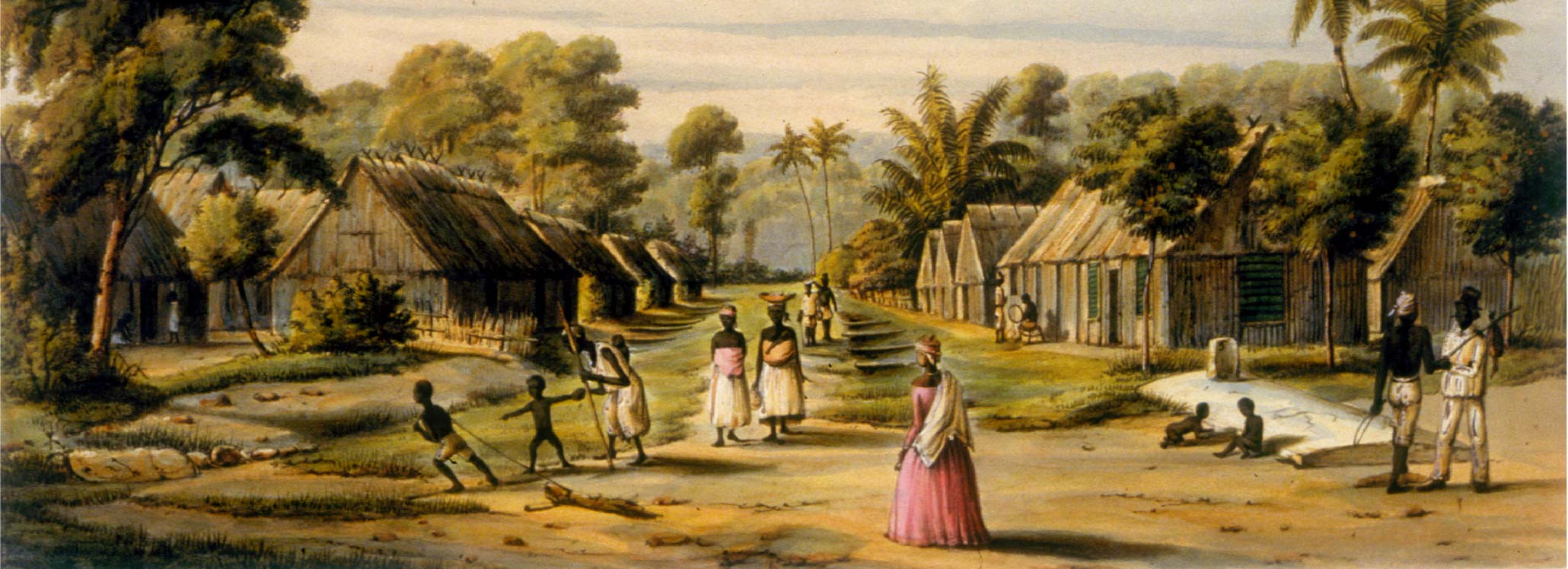Gumbu Smart was slave-raiding warlord and runaway slave in late eighteenth-century Sierra Leone. Smart was born around 1750 in the town of Kalangba in present-day northern Sierra Leone. His birth name was Koko, and he was a member of the Loko ethnic group. His father was named Kande Gbanka Kalangba, and was the chief of Kalangba.
As a young man, Smart accidentally killed his brother in a palm tree-tapping incident and fled from Kalangba. While fleeing, he was captured by raiders who sold him to British traders at Bunce Island, an important slaving port about twenty miles upriver from the modern-day city of Freetown, Sierra Leone’s capital. These traders employed him, giving him the nickname “Smart” because of his trading abilities. Like most European traders, they avoided the African interior as much as possible, and so sent Smart on their behalf to purchase slaves in the interior, supplying him with alcohol, cloth, and other goods to do so. Smart used these goods to quickly gain wealth, buying slaves for less than he had been given. At Bunce Island, Smart also learned English, which allowed him to serve as an important go-between. Eventually, he did not return to Bunce Island with either the goods he had been given or the slaves he was supposed to purchase.
Smart moved further into the interior, marrying two women in different areas to create alliances to increase his political and economic power. At this point, he was based in the town of Mahera, east of Freetown. He joined the Wunde Association, a Mende organization that provided him with military training and support, since the Mende were the dominant group in the interior of southern Sierra Leone. After his initiation, he adopted the first name Gumbu, meaning “fire” in Mende. Gumbu Smart began to buy Loko slaves, and then freed them in exchange for their loyalty. He also would trade slaves of other ethnic groups, like the dominant Temne of northern Sierra Leone, in exchange for his fellow Loko. With his growing group of supporters, Smart settled along the Rokel River in the town of Rokon around 1788. For most of this time, Smart’s primary focus was on promoting trade.
Over the next decade, Smart supported the British in Freetown, helping them in their war against the Temne. At the same time, Rokon developed into an important trading town between people in the interior and the British on the coast. Rokon was the point farther upriver navigable by ship, and thus served as an important waypoint for moving goods to the coast. Primarily dealing in slaves, Smart became one of the most powerful traders in Sierra Leone. In 1794, the Freetown Colony surgeon Thomas Winterbottom described Rokon as the “most considerable town I have seen hereabouts.” As of 1797, a British trader reported that “his adherents amount to several Hundreds, exclusive of his own family who consists of no less than thirty wives and eighty children alive.” Later, it was reported he had several thousand followers, and Rokon contained over 1000 people. In Rokon, Smart built military fortifications filled with his warriors. Smart welcomed contact with Europeans, and was happy to bring two missionaries into Rokon, where they opened a small school in 1798. He also tended to dress in European clothing, and furnished his massive home with furniture and hangings from Europe.
Later in life, Smart’s father learned that he was still alive, and arranged for him to be brought back into the Loko community by marrying a Loko woman.
Around 1820, Smart was killed by Temne chiefs united against him.
Read the full, original biography by Jeremy Rich in The Dictionary of African Biography
Bibliography
Alfred Arkley. The Slave Trade in Sierra Leone (1965). Available online at: http://www.columbia.edu/cu/lweb/digital/collections/cul/texts/ldpd_9054869_000/ldpd_9054869_000.pdf
Adeleye Ijagbemi. “Gumbu Smart: Slave Turned Abolitionist.” Journal of the Historical Society of Sierra Leone 2, no. 2 (1978), pp. 45-60.
Kenneth Wylie. “The Slave Trade in Nineteenth Century Temneland and the British Sphere of Influence.” African Studies Review 16, no. 2 (1973), pp. 203-17.
rich, jeremy. "Smart, Gumbu." Dictionary of African Biography, edited by Ed. Louis Gates Jr.. , edited by and Emmanuel K. Akyeampong. . Oxford African American Studies Center, http://www.oxfordaasc.com/article/opr/t338/e1911 (accessed Thu Sep 05 10:21:32 EDT 2019).
Author
Jeremy Rich
Adapted by
David Glovsky and Elizabeth Timbs
Contributing Institutions
Hutchins Center for African & African American Research, Harvard University, Cambridge, MA.
Oxford University Press (USA) African American Studies Center.





